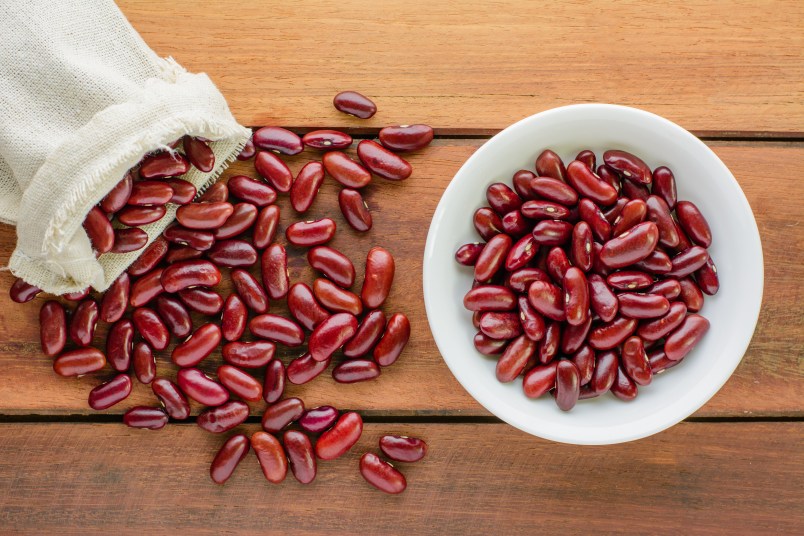You Need This Nutrient to Ward Off Brain Degeneration and Alzheimer’s Disease
Protect yourself from cognitive decline.

As we get older, it becomes important for us to prioritize our brain health by eating a healthy diet. In particular, eating enough folate may help improve cognitive functioning and ward off brain degeneration.
Folate for Brain Health
Folate, also called vitamin B9, is a naturally occurring water-soluble vitamin that your body must get from dietary intake. Folate and folic acid are often used interchangeably, but there’s a structural difference between the two: Folic acid is synthesized, and you’ll find this version in supplements and fortified foods like cereal. Folate is naturally occurring in foods like animal livers, beans, leafy greens, and some fruits and vegetables. Nevertheless, both forms of the vitamin are said to contribute to healthy blood levels.
Folate is used in the body for things like DNA creation and repair, cell division, protein synthesis, and making healthy red blood cells. Folate is also involved in a number of metabolic processes, and it plays a significant role in our nervous system functioning. This makes it one of the most important nutrients for brain health — especially in aging adults.
Research has shown that having low blood levels of folate in the blood is associated with poor cognitive functioning and an increased risk of dementia in older individuals. Other studies have also found that even “low-but-normal” blood folate levels were associated with an increased risk of cognitive decline.
On the flip side, some findings suggest that increasing folate intake may improve brain functioning in those with cognitive impairment. One 2019 study including 180 adults with mild cognitive impairment (MCI) showed that taking 400 micrograms (mcg) of folic acid per day for two years resulted in significant improvements in brain function. Compared to the control group, participants taking the folic acid scored better on verbal IQ test, and also showed reduced levels of proteins commonly found in those with Alzheimer’s disease.
Another study in people newly diagnosed Alzheimer’s disease found that taking 1,250 mcg of folic acid per day for six months alongside the medication donepezil had reduced inflammation and improved brain functioning compared to patients who were only taking the medicine.
On top of these performance benefits, this powerhouse nutrient may also provide protection from mood disorders. In fact, depression is actually associated with folate deficiency, and some research suggests that you may be able to combat the condition by getting more of it.
Luckily, getting more vitamin B6 is simple. While you’ll find folic acid in many supplements, it’s probably safer to try to get more folate from the foods that you eat, since too much can cause skin problems and liver damage. The recommended daily intake for folate is 400 micrograms, which you can easily get by adding more beef liver, asparagus, Brussel’s sprouts, spinach, mustard greens, citrus fruits, peanuts, lentils, and kidney beans to your diet.
Here’s to a healthier, happier brain!













